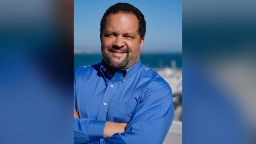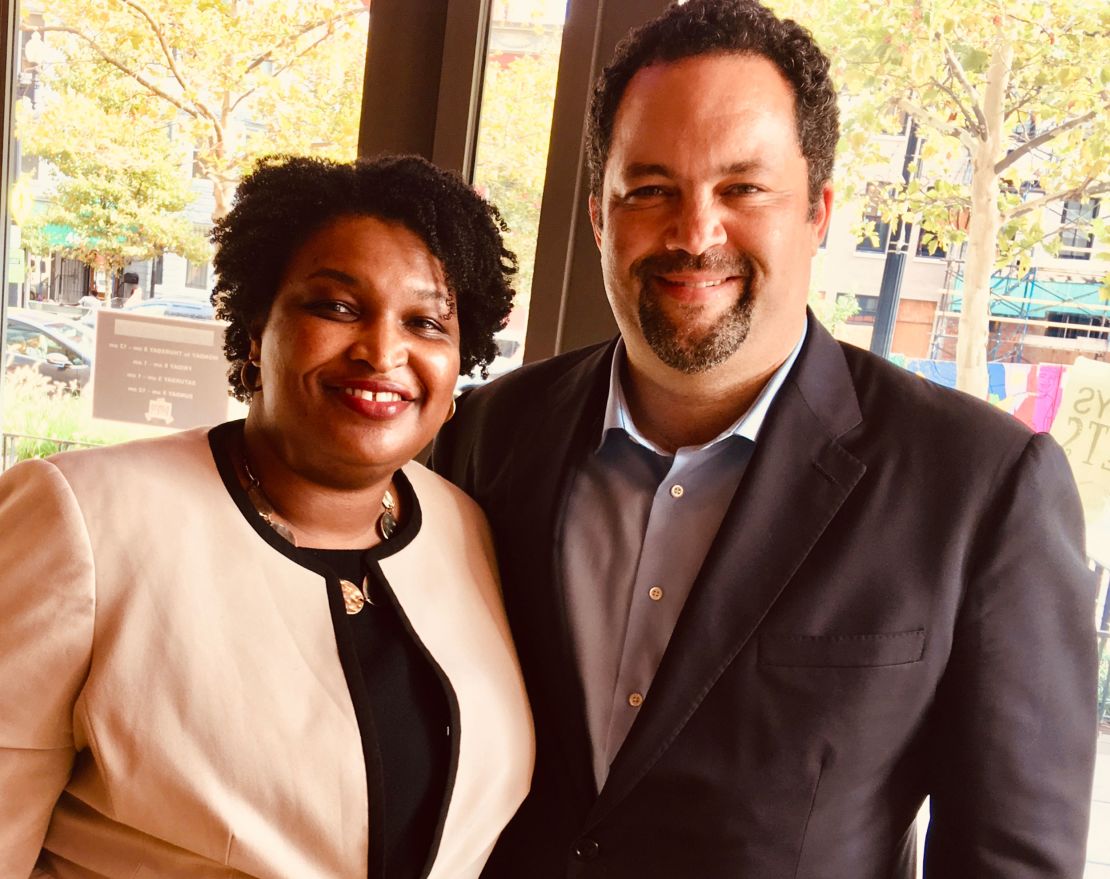Editor’s Note: Benjamin Jealous is a visiting scholar at the Annenberg School for Communication at the University of Pennsylvania and a board member at Pigeonly.com. He is the former national president and CEO of the NAACP. He resides in Maryland and was his state’s 2018 Democratic nominee for governor. The views expressed in this commentary are his own. View more opinion on CNN.
Nearly 30 years ago, I met Stacey Abrams at a training for student organizers hosted by the A. Philip Randolph Institute, an organization for African American trade unionists. I had just been suspended by Columbia University for protesting the university’s plans to turn the Audubon Ballroom, where Malcolm X was shot to death, into a biomedical research facility. And Abrams was on her way to becoming student body president of Spelman College.
Coming of age and eager to make a difference, we were brimming with hopeful visions of a level playing field for all Americans. I believed in her ambition to create a more just and equitable society in the South, and that is exactly what I have had the privilege to witness over the last three decades. As an activist, attorney and formidable political leader, she has proven time and time again her ability to break barriers for others.

And it’s time for Abrams to break one more barrier — as Joe Biden’s vice-presidential candidate. She has many of the strengths that can help Biden win in November, including popularity among key Democratic constituencies: progressives, young voters and voters of color — and the data backs it up.
But Abrams has something more — a determination to get the job done, no matter what challenges may stand in her way. And given the stakes of the 2020 election, that tenacity will be a quality critical to winning back the White House in November
As the youngest president in the history of the NAACP, I understand what it means to be underestimated for a job — and I know there are many who may doubt if Abrams is capable of taking on the vice-presidential task. After all, when there is no precedent for your power, no figure in authority to emulate, it becomes difficult for others to accept the legitimacy of your capability.
However, for Abrams, these barriers have often been present, and not once did they stand in her way. For example, I saw firsthand how effective she was as the Georgia House Democratic Leader, and I might add, the first woman to lead a party in either house of the Georgia Legislature.
In the minority — and in the Deep South — Abrams moved several bipartisan pieces of criminal justice reform through the legislature, from reforming juvenile detention systems to improving the parole system. Additionally, she single-handedly blocked tax increases on the working poor and middle class, while also forging strategic alliances to repeatedly block anti-environmental legislation pushed by top Republicans.
I saw how Abrams harnessed the power of labor unions and generous donors to train and hire low-income rural Georgians to sign one another up for Obamacare when her state refused to accept the federal funds for Medicaid expansion. Whenever those in power refused to act, Abrams was on the ground with everyday Georgians working to ensure that their communities had the care and resources to get ahead and stay ahead. And there is no doubt she would adopt a similar approach at the national level, too.
But Abrams also brings something to politics that is often lacking — creative approaches to complex challenges, and given the current pandemic crisis we are facing, we need her creative thinking, now more than ever.

As a former candidate for governor myself, I am in a unique position to speak to how Abrams responded by building organizations to tackle some of these challenges in her home state and across the country. When an estimated 800,000 people of color were not registered to vote in Georgia, she founded an organization, the New Georgia Project, that claims it has now registered more than 400,000 voters — despite a constant battle with then-Secretary of State Brian Kemp, who is now the state’s Republican governor.
But Abrams has another key quality for high office — when she sees injustice, she takes action. In the wake of allegations of rampant voter suppression plaguing the 2018 election and the silencing of Georgians across their state, Abrams flexed her executive repertoire by building an 18-state voter protection network, Fair Fight 2020, that is wholly unprecedented in Democratic politics. Abrams has worked with federal, state and local leaders to build up the organization, raise millions of dollars to finance the efforts in Georgia and nationally, and anticipate GOP suppression tactics.
She has created a national organization, Fair Count, to target hard-to-count voters in the 2020 Census. Fair Count is operating in multiple states and works in partnership with groups preparing for redistricting. And on top of an ever-expanding portfolio of service, Abrams launched a 12-state policy initiative, the Southern Economic Advancement Project, that is helping bring progressive policy and implementation strategies to the South. In short, she knew even if she could not become governor, that there was still work that needed to be done — and now she is doing just that.
My confidence in Abrams is not a dig on any other potential pick for vice president, but a recognition that leadership and experience can be gained in more than one way — and that the proof is not just a glossy cover letter, but the tangible results of hard work in communities across the country.
I would be remiss if I did not mention a former president who was counted out and dismissed because he only had a short stint in the Senate on his side — and minimal management history — but his dramatic success shows that sometimes titles and lines on a resume are not the most predictive metric. Former President Barack Obama changed the calculation of what it means to be day-one ready, and a Vice President Abrams would do just the same. Abrams may not look like the traditional candidate, but to accomplish what she has in the South and across the country, she had to buck tradition.
Biden himself referred to Abrams as “the woman who should have been governor of Georgia.” He’s right. I would go one step further and refer to Abrams as someone who would be an ideal next vice president.

